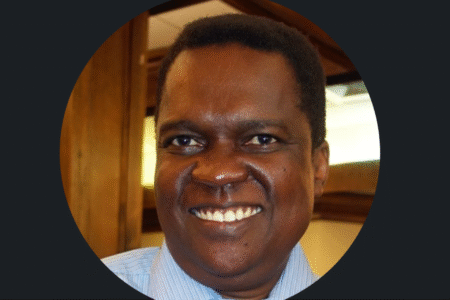Green Success Stories sat down with Mohammadreza Ghodoosi, engineer in the Public Utilities Water Division of The City of San Diego, to chat about water efficiency and sustainability in the City of San Diego. Tell us a little bit about your background.
Tell us a little bit about your background.
I am an engineer in the Public Utilities Water Division of the City of San Diego. I have extensive experience in management, customer service, construction, and water resources. I currently hold a certification in Public Utilities Management from the City of San Diego and am further certified as an Engineer-in-Training (EIT) by the California Department of Consumer Affairs, Board for Professional Engineers, Land Surveyors, and Geologists.
What would you do with $1 billion dollars?
I would approach the prospect of having $1 Billion dollars with a plan to magnify its long-term effect and viability in facing what I perceive to be one of the biggest obstacles we face as a global community: climate change. Although certainly a multifaceted approach, I would first focus on mitigation efforts. This would include large-scale contributions in renewable energy projects to reduce greenhouse gas emissions, i.e., solar, wind, and hydropower transportation, equipment, and facilities. I would also focus on climate adaptation and biodiversity to protect our communities and ecosystems from the increasing impacts of climate change, including extreme weather events and rising sea levels. Reforestation, clean water, and sanitation projects, and improved waste management systems are additional ventures that would be necessary for maximizing mitigation. What remains is our work toward long-term solutions and normalizing sustainability practices on a global scale. This would inevitably require changes in global policies and environmental standards, which begin with individual and collective behavioral changes such as reducing energy consumption and pollution. Recognizing this need, I would also allocate contributions towards the development of “green” research, technology, and innovation in addition to contributions towards early awareness and education.
Why do you think sustainability is such an important topic today?
We continue to face a wide range of global challenges in connection with the environment, society, and economy, which makes addressing sustainability of utmost importance today and in the future. We are increasingly noticing the negative effects of environmental degradation and climate change and their threat to many of Earth’s limited natural resources. Sustainable practices, more than ever, are necessary in the mitigation of our global environmental challenges, such as climate change, disruptions to our ecosystems, pollution, and habitat destruction. While sustainability is an increasingly critical topic today, there is still a considerable road ahead in terms of achieving widespread understanding, urgency, and action.
What do you envision your industry looking like in ten years?
There are many variables involved in the City of San Diego’s water construction and development industry; however, there are current trends and essential considerations that are developing as we are constantly working towards innovation and sustainability. Water efficiency plays a critical role in our day-to-day operations, and there is always an emphasis on eco-friendly water management and conservation in government projects. We can expect robust initiatives to reduce water loss through innovative leak detection and smart water distribution systems, as well as enhanced technologies to promote community engagement and water conservation as they apply to homes and businesses. The growing population in conjunction with climate change will also give rise to the ever-increasing need for weather-resilient water infrastructure planning in tandem with its ecological impacts. In the next decade, we can expect continued efforts to modernize treatment plants, distribution networks, and wastewater facilities by implementing advanced stormwater management systems, flood control measures, enhanced water storage solutions, and the use of AI-driven solutions to optimize water management and improve operational efficiency.




